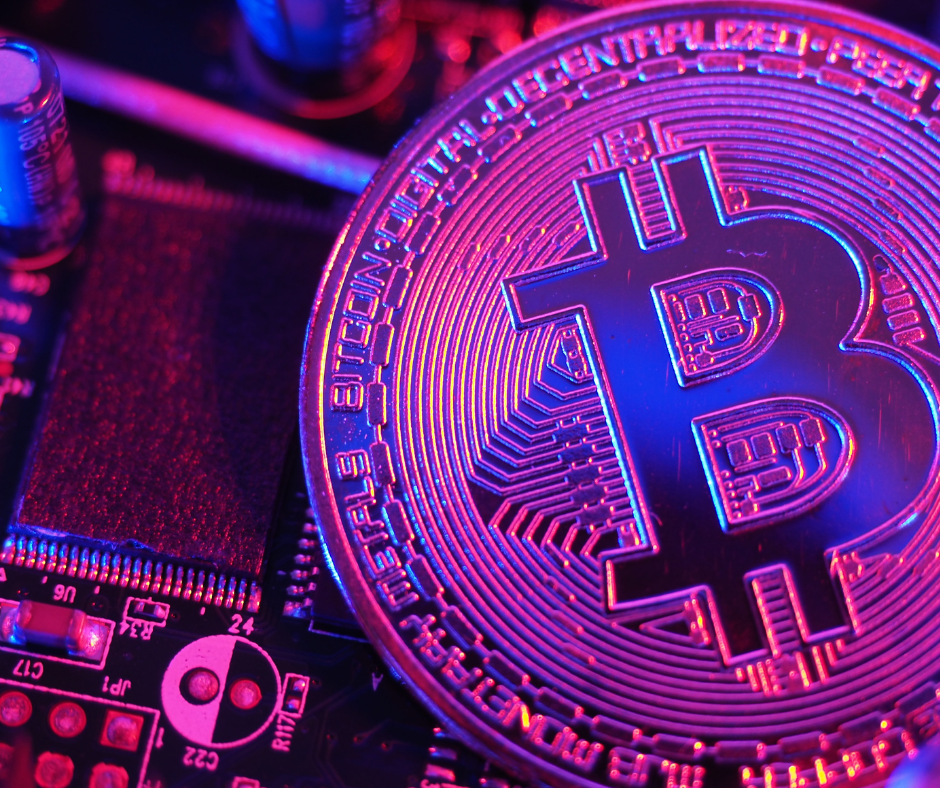Cyber Security and the Digital Gold Rush of Bitcoin
July 23, 2024

Bitcoin, the first and most well-known cryptocurrency, has garnered significant attention since its inception in 2009. Created by an anonymous individual or group known as Satoshi Nakamoto, Bitcoin offers a decentralized, peer-to-peer system for transferring value across the internet. While its promise of financial freedom and privacy has captivated millions, it also presents unique cybersecurity challenges. In this blog, we will explore the intersection of Bitcoin and cybersecurity, highlighting the risks and measures to safeguard this digital asset.
The Appeal of Bitcoin
Bitcoin operates on a blockchain, a public ledger that records all transactions. This decentralized nature means no single entity controls the currency, making it resistant to censorship and providing a degree of anonymity. These features have made Bitcoin popular for a range of uses, from everyday transactions to speculative investments. However, its increasing value and popularity have also made it a prime target for cybercriminals.

Cybersecurity Risks Associated with Bitcoin
- Wallet Security:
- Hot Wallets: These wallets are connected to the internet and are therefore more vulnerable to hacking. They are convenient for frequent transactions but pose a significant security risk.
- Cold Wallets: These are offline storage methods, such as hardware wallets or paper wallets. While more secure against online attacks, they come with risks like physical theft or loss.
- Exchange Vulnerabilities:
- Hacks and Breaches: Cryptocurrency exchanges, where users buy and sell Bitcoin, are frequent targets for hackers. Notable breaches, such as the Mt. Gox hack in 2014, resulted in the loss of hundreds of millions of dollars.
- Phishing Attacks: Cybercriminals often use phishing schemes to trick users into revealing their login credentials for exchanges, leading to unauthorized access and theft.
- Ransomware:
- Bitcoin’s pseudonymous nature makes it the preferred currency for ransomware attacks. Cybercriminals encrypt victims’ data and demand Bitcoin payments for decryption keys, knowing that transactions are hard to trace.
- Fraud and Scams:
- Ponzi Schemes: Fraudulent investment schemes promise high returns on Bitcoin investments but collapse, leaving investors with significant losses.
- Fake ICOs: Initial Coin Offerings (ICOs) can be scams where fraudsters create fake cryptocurrencies, collect funds in Bitcoin, and disappear.

Enhancing Bitcoin Security
- Securing Wallets:
- Use Cold Storage: For long-term storage, use cold wallets and keep backup copies in secure locations.
- Enable Two-Factor Authentication (2FA): Add an extra layer of security by enabling 2FA on wallets and exchange accounts.
- Choosing Reputable Exchanges:
- Research and Reviews: Choose exchanges with a strong track record and positive reviews. Ensure they have robust security measures in place.
- Diversify: Avoid keeping all your Bitcoin on a single exchange. Diversify to mitigate risk.
- Awareness and Education:
- Phishing Awareness: Be vigilant against phishing attempts. Verify the authenticity of emails and websites before entering sensitive information.
- Stay Informed: Keep up with the latest security practices and updates in the cryptocurrency space.
- Using Security Tools:
- VPNs and Antivirus Software: Use Virtual Private Networks (VPNs) and reliable antivirus software to protect against malware and hacking attempts.
- Regular Updates: Ensure that your devices and applications are up-to-date with the latest security patches.
Regulatory and Community Efforts
Governments and regulatory bodies are increasingly recognizing the need to address the cybersecurity challenges associated with Bitcoin. Efforts include developing regulatory frameworks to ensure exchanges adhere to security standards and working with the cryptocurrency community to promote best practices.
Additionally, the Bitcoin community itself is proactive in enhancing security. Open-source development allows for continuous improvements to the Bitcoin protocol, and initiatives like bug bounty programs encourage ethical hacking to identify and fix vulnerabilities.

Bitcoin represents a groundbreaking shift in the way we think about money and financial transactions. However, its digital nature inherently comes with cybersecurity risks. By understanding these risks and implementing robust security measures, users can protect their Bitcoin holdings and participate safely in the evolving world of cryptocurrencies.
As the landscape of digital currencies continues to evolve, staying informed and vigilant will be key to navigating the complexities of Bitcoin cybersecurity. Whether you are a seasoned investor or a newcomer, prioritizing security is essential in this new era of digital finance.
Have Any Question?
Call or email Cocha. We can help with your cybersecurity needs!
- (281) 607-0616
- info@cochatechnology.com




